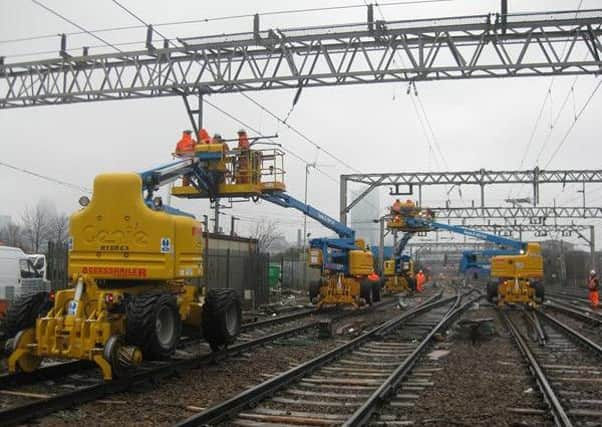Paul Maynard: Why I will not electify Hull to Selby railway route


ON November 2, First Hull Trains (FHT), announced an investment of £60m in five new trains of five carriages each that can take full advantage of the existing electrified East Coast Main Line and then continue on to Hull via Selby.
The trains can be powered by either electricity or diesel. These new trains will offer 327 seats (20 per cent more than current services) and greater comfort. The new interiors will include air conditioning, Wi-Fi, and power sockets. Journey times will remain as now but the possibility exists to provide faster journeys in the future through the train’s higher maximum speed (225 km/h) and faster acceleration characteristics.
Advertisement
Hide AdAdvertisement
Hide AdPassengers travelling to Hull will see these benefits as soon as the trains enter service in 2019; without the need for electrification of the Selby to Hull route. As a result of this significant investment, First Hull Trains were granted access by the Office of Rail and Road to continue operating services until at least 2029.
I am pleased also to be able to confirm that passengers travelling to Hull and to East Riding will benefit from a number of other improvements. Virgin Trains East Coast (VTEC) will run faster services when their new fleet of Azuma trains are introduced from 2018, taking up to six or seven minutes off the route from London to Hull.
The newly ordered fleet for First Hull trains would be able to match the VTEC Azuma speeds on the East Coast, so Hull-London passengers will also benefit from journey time savings south of Selby on both Hull trains and VTEC through trains between London and Hull.
The Arriva Rail North franchise, which started on April 1, has committed to upgrading the Hull-Doncaster-Sheffield route to a new high-quality ‘Northern Connect’ service. There will be new or refurbished trains on these longer-distance services, with faster journeys and stations staffed daily, with catering services and free Wi-Fi at each one.
Advertisement
Hide AdAdvertisement
Hide AdThe franchise has also committed to extending the current Leeds-Selby service to Hull (creating a new Halifax/Bradford to Bridlington through service), thereby offering two trains per hours for most of the day between Leeds and Hull and offering much better through links.
First Group has also announced that they will be purchasing 19 five car bi-mode diesel trains to run on the TransPennine Express network. The majority will be assembled at Hitachi’s factory in Newton Aycliffe.
Although the new trains would serve a different route until the TransPennine Route Upgrade is complete, these bi-mode trains would enable a direct service to be maintained between Manchester and Hull, even after Manchester to Selby is electrified.
As a result of using dual-fuelled trains, passenger benefits can be delivered without the significant disruption of electrification, where passengers have had months of either complete line closure or mid-week nights and weekend closure (depending on the nature of the work). There are also often associated disruptive road works, where road bridges have to be rebuilt over several weeks to months, to accommodate the new wires underneath.
Advertisement
Hide AdAdvertisement
Hide AdThe original proposal in 2013 proposed to fast track electrification of the Hull to Selby line.
The construction was to be financed by a proposed contribution from the Humber Local Enterprise Partnership and a private sector bridging loan to enable an earlier start of the scheme.
The loan would need to be repaid by government on completion of the scheme and the proposal was therefore a fully publicly-funded scheme.
Given the number of passenger benefits already being delivered without electrification, there is almost no further benefit to justify further publicly funded investment and the disruption electrification would bring.
Advertisement
Hide AdAdvertisement
Hide AdThe Department for Transport has committed to investment in improved transport facilities in Hull and the Humber. Good progress is being made on the £88m upgrade to the A180/A160 at the entrance to the Port of Immingham and we remain committed to finding a way forward with improvements to the A63 Castle Street in Hull.